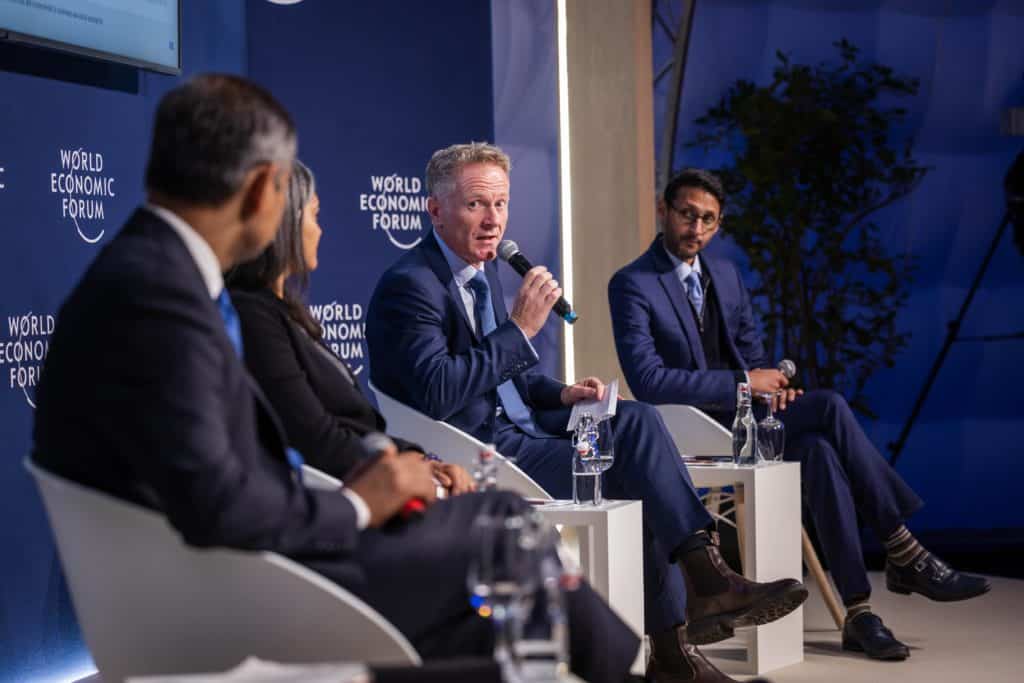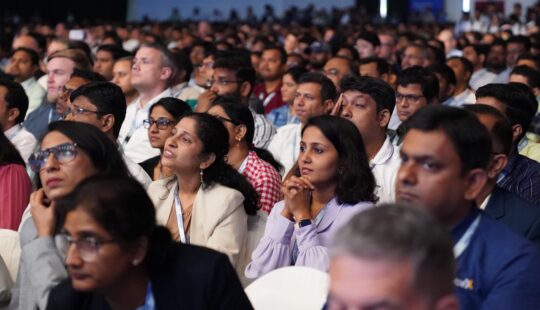Last week, I had the honour of representing Asia Pacific and Japan at the World Economic Forum in Davos, where the world’s leading businesspeople, politicians, and decision-makers congregate to discuss the future direction of our planet.
The theme of this year’s conference is co-operation in a fragmented world – a topic I was particularly interested in exploring in the context of sustainability. Reflecting on those topics, I believe there are three key insights for us all to consider.
 The Net Zero Challenge Will Be Won or Lost in Asia
The Net Zero Challenge Will Be Won or Lost in Asia
Across a range of panel sessions and meetings, one thing stood out clearly: Asia will play a decisive role in the climate discussion. Our region is the leading contributor of emissions with a 51% share of global carbon emissions.
That’s critical because Asia will also bear the biggest impact of climate change. Our latest research reveals that a severe increase in temperature could impact up to 26% of Asia’s GDP – and even more in some regions like SouthEast Asia.
That Means This Biggest Opportunity for Climate Action Is Here in Asia
Asian companies are uniquely placed. We not only face the greatest risk from climate change, but also the greatest opportunity to realise benefits. More than half (53%) of the new revenue opportunity for sustainability business models comes from Asia, and 50% of Asian business will see sustainability as financially material in the next five years.
However, Asia’s enormous diversity and complexity means there is no single solution to climate change.
To tackle this, companies need to define and implement both adaptation and mitigation strategies, and create best practices on corporate climate action. Leadership collaboration is critical across our networks and value chains. The leaders from global governments, our customers, our partners, and climate organisations were all here and mobilised.
To Take Action We Have to Operationalise Climate Action – That Needs Technology
It’s clear that leadership intent for climate action, especially from CEOs, is there. But that intent can become diluted when the time comes to operationalise that vision.

Climate action should never be considered separate to other business processes like finance or operations, climate action should be intrinsic to each of them. And the way to do that is by measuring sustainability data and integrating it into core business processes – essentially creating an ERP for ESG.
But companies across Asia are at the start of this journey. Over three quarters (76%) of Asian businesses are not completely satisfied with their ability to accurately measure their impact on the environment. Companies like SAP are critical to helping organisations on that journey.
At the end of a whirlwind week I remain optimistic, especially about the opportunity from green tech to accelerate climate action. The risk if we don’t act is severe, but realising these opportunities could create entire industries and uplift communities.
Asia is a unique place and can be the lynchpin in our global in our work against climate change. The region’s diversity, growth, and entrepreneurial talent and spirit in areas like innovation means we can make a real difference to climate adaptation and mitigation.
We have a big responsibility, but I am confident that – together – we can win this fight.



